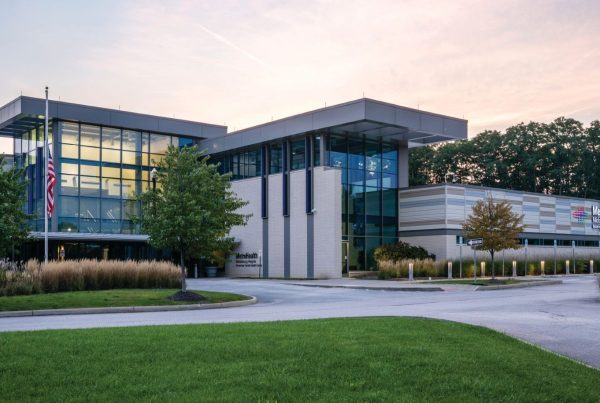Seventy-five percent of women who are diagnosed with breast cancer have no identifiable risk factors or known family history, making yearly mammograms an important tool for women and their care team to track changes in breast health. Because of this, the breast health specialists within The MetroHealth System recommend that women start getting a yearly mammogram at age 40.
At MetroHealth, we go further with mammograms, and are the only area system that utilizes both 2-D and 3-D mammography at all screening locations. 3-D mammography, also known as breast tomosynthesis, allows providers to look through overlapping tissues in the breast in a way that 2D mammograms do not, which provides increased detection of cancer. 3-D mammography is a standard annual offering at MetroHealth, and patients do not pay extra to receive this extra screening.
For women who are at high risk for breast cancer due to family history or other factors, doctors recommend an evaluation at our high-risk breast clinic. Providers may recommend starting annual mammograms earlier than 40 for some people and additional screenings with MRI may be offered.
HOW TO
Schedule a Mammogram
All patients need an order from their physician to have a mammogram. If you do not have an order please message your physician.
While recommendations vary among professional societies on when to start yearly mammograms, experts agree that starting mammograms at age 40 saves the most lives. In fact, 40% of the years of life saved among women with breast cancer happen because of mammograms started in a woman’s forties.
When you get a mammogram at MetroHealth, not only will you be screened with advanced 3-D mammography, your care team will assess your breast density and calculate your lifetime risk for breast cancer. Dense breast tissue is normal and 40% of women have dense breasts. However, dense breasts can increase your risk of breast cancer. On standard mammograms, dense breast tissue and potential cancerous tissue can look similar, making cancer difficult to detect.
If you have dense breasts, you will be offered a supplemental screening ultrasound known as Automated Breast Ultrasound (ABUS). Through ABUS, your MetroHealth care team can look inside dense breast tissue to differentiate between dense tissue and potential changes that can indicate cancer. Combining a mammogram with ABUS is 97% effective at identifying cancer.
For patients found to have an intermediate or high risk of breast cancer, MetroHealth doctors may recommend starting annual mammograms earlier than 40 and additional screening with MRI or risk-reducing medications may be offered.
MetroHealth is fighting for women to have access to these life-saving screenings at the Ohio Statehouse. Christina Clemow, MD recently testified on House Bill 371, which has been signed into law: Ohio’s Breast Cancer Screening Law. “From our experience at MetroHealth, the key factors that prevent dense breast patients and high-risk patients from receiving additional screening exams include out-of-pocket expenses and lack of education regarding dense breasts and risk of breast cancer,” testified Clemow. “HB 371 addresses patient affordability factors and education.”
Ohio’s new Breast Cancer Screening Law requires coverage of one screening mammogram every year, regardless of the woman’s age or risk factors. It also specifies that MetroHealth’s standard digital breast tomosynthesis is covered. The new Breast Cancer Screening law also requires supplemental screening exams (ABUS and MRI) for dense breasts and high-risk patients to be covered by the Medicaid program and health insuring corporations, sickness and accident insurers, and public employee benefit plans. The provisions of this law are set to begin in September 2022.











